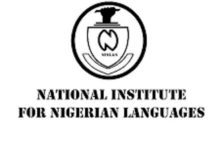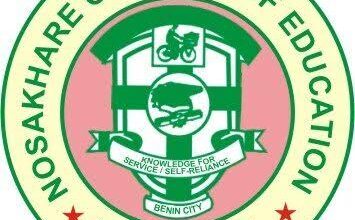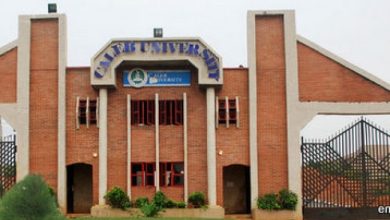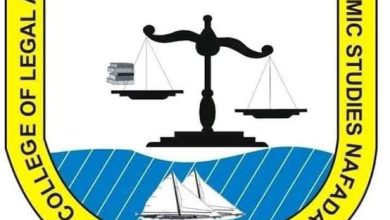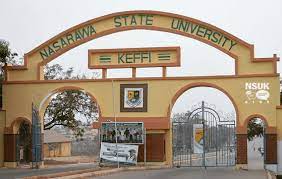Hope and Anchor College of Education, Courses, Hostel Accommodations and Admission Requirements
Do you want to enroll in Hope and Anchor College of Education but you don’t know if the course you want to study is being offered by the School? How about understanding the necessary requirements for enrollment in the school? You can use the information in this article to learn everything you need to know about the school.
This article details the school admission requirements, hostel accommodations and list of courses offered
About Hope and Anchor College of Education
Hope and Anchor College of Education has a long and prestigious history spanning over 100 years, the college has upheld a tradition of excellence and innovation in teacher education. Hope and Anchor has produced many renowned educators and leaders who have shaped education in meaningful ways.

Hope and Anchor College of Education Admission Requirements
There are some things you need to do in order to get into Hope and Anchor College of Education Knowing these ahead of time will help you make sure your application is complete and raise your chances of being accepted.
Minimum Requirements for Admission
In order to be admitted, you must:
- Have at least five credits in related subjects, such as English Language, Mathematics, one Science subject, and two other subjects. You can get these credits in one sitting or over two sittings, but not more than five credits in a row.
- You have to be at least 16 years old to apply.
Must have at least five years of education after elementary school. - For Direct Entry candidates, you must have at least one upper credit in the appropriate ND program.
- Must get at least the minimum score on the UTME to get into the college. The cut-off mark changes every year based on how much competition there is.
- Must have made their first choice when they signed up for JAMB.
Steps for Applying
If you want to get Admission you need to do the following:
- You can either buy the college’s application form from the admissions office or get it from the website. Carefully read and fill out the form.
- Attach printouts of your IDs, such as your birth certificate, WAEC or NECO results, proof of where you live, etc., to the form you’ve filled out
- Before the due date, bring the completed admission form along with the necessary papers to the admissions office. Applications that are too late will not be looked at.
- Check the website or notice board of the admissions office or the admissions list to see if you were given provisional admission.
- You have until the due date to accept the offer of entry on the college’s website or in person at the admissions office. If you do not accept by the limit, you will lose your chance to be admitted.
- When school starts up again, go to the college for screening and registration. Bring the original copies of the papers that are attached to your admission form so that they can be checked.
- Being able to go is possible if you carefully follow these entrance rules.
Courses Offered
- Christian Religious Studies / English
- Christians Religion Studies / Social Studies
- Christians Religion Studies / Yoruba
- Computer Science Education / Integrated Science
- Computer Science Education / Mathematics
- Early Childhood Care Education
- Economics / English
- English / French
- English / Hausa
- English / Igbo
- English / Political Science
- English / Social Studies
- English / Yoruba
- Hausa / Social Studies
- Integrated Science
- Integrated Science / Mathematics Education
- Primary Education Studies
- Public Administration
- Social Studies
- Computer Education / Integrated Science
- French (Double Major)
- Social Studies (Double Major)
- English (Double Major)
Hostel Accommodation
Location and Facilities
Hope and Anchor College of Education’s hostel accommodation is located within the college campus, providing easy access to classes and resources. The hostel features single, double and four-bed rooms with basic amenities like beds, study tables, chairs, fans, and attached bathrooms. Recreational spaces such as a common room, mess, and outdoor sitting areas allow students opportunities to study or socialize.
Rules and Regulations
To maintain order and security, the hostel has strict rules regarding visitation, quiet hours, and prohibited items. Students must sign in and out when leaving the hostel and are not permitted to have visitors of the opposite gender in their rooms. Quiet hours are enforced from 10 PM to 6 AM to allow others to rest. Alcohol, drugs, weapons, and cooking equipment are banned for safety reasons. Students who repeatedly violate these rules may face expulsion from the hostel.
Mess Facilities
The hostel mess provides three meals per day for residents. Meals typically consist of a staple grain like rice or roti, dal, subzi, curd or fruit. Non-vegetarian options and special meals are available a few times each week. Students are required to wash their own plates after meals. For those with special dietary needs, a separate cooking area is available to prepare personal meals. Students are expected to keep this area clean.
Maintenance and Housekeeping
Hostel staff perform regular maintenance and housekeeping to keep the facilities clean and in working order. Students are responsible for maintaining basic hygiene in their own rooms like sweeping, mopping, dusting, and waste removal. Beds are made and linen is changed once per week. Laundry services are available for personal items at an additional cost. Any issues with plumbing, electrical systems or other infrastructure should be reported to the hostel warden immediately.
To summarize, the hostel at Hope and Anchor College of Education aims to provide students with safe, affordable housing and essential services so they can focus on their studies. By following the rules and regulations set in place, students can enjoy a comfortable living environment during their time at the college.
FAQs
What programs does the college offer?
Hope and Anchor College of Education offers a variety of programs to prepare students for careers in teaching and educational administration. We offer bachelor’s and master’s degrees in Early Childhood Education, Elementary Education, Secondary Education, and Educational Leadership. Our programs provide a balance of theory and practice to give students a comprehensive learning experience.
What is the application process?
Applying to Hope and Anchor College of Education involves submitting an online application, official transcripts from all schools attended, SAT or ACT scores for undergraduate applicants, two letters of recommendation, and a personal essay. Our admissions committee reviews all parts of the application to determine acceptance. The deadlines for applications are January 15th for fall admission and October 1st for spring admission.
What scholarships and financial aid are available?
Hope and Anchor College of Education offers generous scholarships and financial aid options for students. Academic scholarships are available for incoming freshman and transfer students based on GPA and test scores. The college also provides need-based grants, federal student loans, and work-study programs. Students should submit the Free Application for Federal Student Aid or FAFSA to determine eligibility for financial aid. Our financial aid counselors work closely with students to create an affordable financial plan for their education.
What student organizations and activities are on campus?
Hope and Anchor College of Education has an active student life with over 20 student organizations and clubs, including the Student National Education Association, the Student Council for Exceptional Children, and Kappa Delta Pi International Honor Society in Education. Students can also participate in intramural sports, student government, campus ministry, and volunteer programs. The college hosts cultural events, lectures, and student activities throughout the year.
What career and job opportunities do graduates have?
Graduates of Hope and Anchor College of Education have a wide range of career opportunities in education. Early Childhood and Elementary Education majors can pursue careers as preschool teachers, kindergarten teachers, elementary school teachers, and reading specialists. Secondary Education majors are prepared to teach middle school and high school. Educational Leadership majors are prepared for leadership roles such as principal, curriculum director, and superintendent. Many of our graduates go on to work in schools and districts around the state and country.
Read also: Best Universities to Study Intelligence and Security Studies in Nigeria


